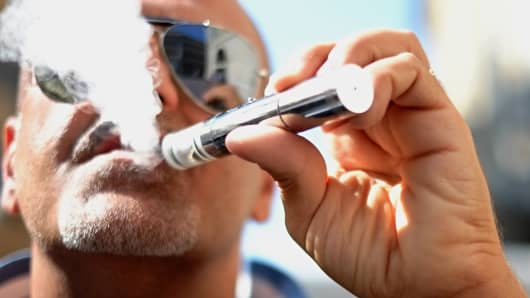Traditional tobacco companies need to adapt to the rise of electronic cigarettes - or e-cigarettes - ahead of the product becoming regulated in the U.K., according to an analyst at Berenberg Bank.
Britain's Medicines and Healthcare Products Regulatory Agency is set to regulate the sale of e-cigarettes in 2016. However, Erik Bloomquist, senior analyst of consumer staples at Berenberg, told CNBC that the agency will endorse an e-cigarette produced by British American Tobacco (BAT) next year, which will be a turning point in the product's popularity.
(Read more: E-cig sellers jockey for market position before FDA issues regulations)
"We think [this] will be really critical because then they'll be able to tell people: 'this is a product that is lower risk than a traditional cigarette'," he said.
An e-cigarette is an electronic inhaler, usually containing nicotine and emitting a harmless vapor, that is meant to simulate - and be a substitute for - tobacco smoking,




